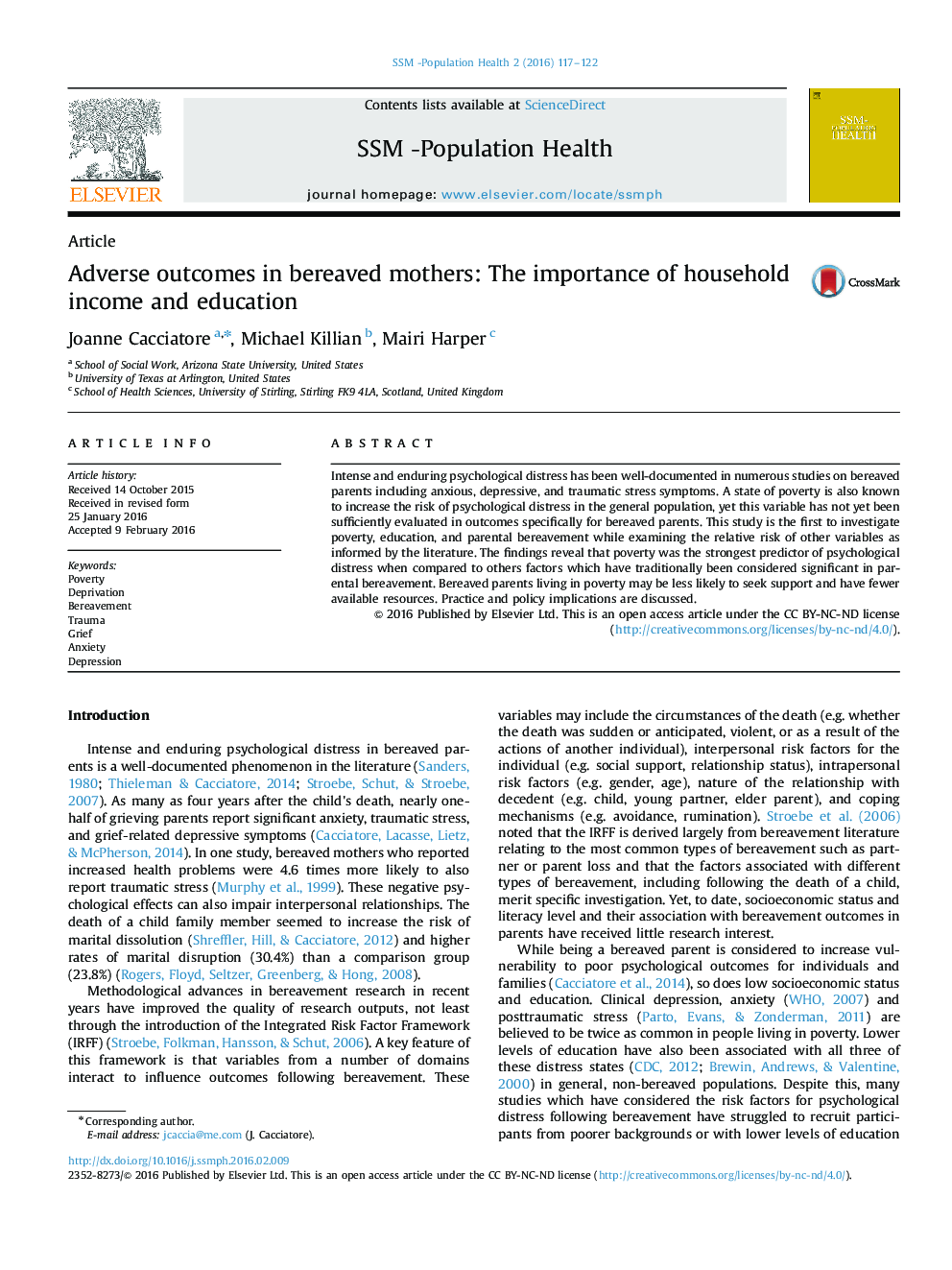| کد مقاله | کد نشریه | سال انتشار | مقاله انگلیسی | نسخه تمام متن |
|---|---|---|---|---|
| 1092312 | 1487260 | 2016 | 6 صفحه PDF | دانلود رایگان |
• What is known on the subject:
• Anxious, grief-related depressive and traumatic stress symptoms are common in bereaved parents following the death of their child 90.
• What this paper adds to existing knowledge:
• People who had lower incomes had higher levels of anxiety, depression and posttraumatic stress.
• The implications for policy and practice:
• Parents with low incomes and low levels of education may not be able to access support following their loss.
• Providers and policy makers should aim to identify if other stressors are contributing to distress rather than focus solely on diagnoses related to loss.
• No cost broader bereavement services may be important to consider for those living in poverty.
Intense and enduring psychological distress has been well-documented in numerous studies on bereaved parents including anxious, depressive, and traumatic stress symptoms. A state of poverty is also known to increase the risk of psychological distress in the general population, yet this variable has not yet been sufficiently evaluated in outcomes specifically for bereaved parents. This study is the first to investigate poverty, education, and parental bereavement while examining the relative risk of other variables as informed by the literature. The findings reveal that poverty was the strongest predictor of psychological distress when compared to others factors which have traditionally been considered significant in parental bereavement. Bereaved parents living in poverty may be less likely to seek support and have fewer available resources. Practice and policy implications are discussed.
Journal: SSM - Population Health - Volume 2, December 2016, Pages 117–122
